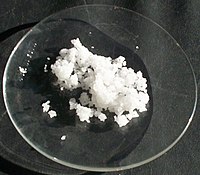
Screening of the ability of natural feed ingredients commonly used in pig diets to interfere with the attachment of ETEC K88 (F4) to intestinal epithelial cells
Sign Up to like & getrecommendations! Published in 2018 at "Animal Feed Science and Technology"
DOI: 10.1016/j.anifeedsci.2018.06.005
Abstract: Abstract Enterotoxigenic Escherichia coli (ETEC) K88 (F4) is a worldwide cause of severe diarrhoea in the offspring of some animal species such as weaned pigs. Preventing ETEC K88 (F4) attaching to the small intestine by… read more here.
Keywords: intestinal epithelial; feed ingredients; etec k88; feed ... See more keywords

Evaluation of coated zinc oxide in young pigs challenged with enterotoxigenic Escherichia coli K88
Sign Up to like & getrecommendations! Published in 2020 at "Animal Feed Science and Technology"
DOI: 10.1016/j.anifeedsci.2020.114399
Abstract: Abstract This study aimed to evaluate the effects of coated zinc oxide supplementation on growth performance, fecal scores, blood profiles, intestinal and fecal microbial shedding, and small intestinal morphology in young pigs challenged with enterotoxigenic… read more here.
Keywords: zinc oxide; coated zinc; etec k88; fed basal ... See more keywords

Enzymatic Synthesis and Purification of Galactosylated Chitosan Oligosaccharides Reducing Adhesion of Enterotoxigenic Escherichia coli K88.
Sign Up to like & getrecommendations! Published in 2017 at "Journal of agricultural and food chemistry"
DOI: 10.1021/acs.jafc.7b01741
Abstract: Enterotoxigenic Escherichia coli (ETEC) K88 causes diarrhea in weaned piglets and represent a suitable model system for ETEC causing childhood diarrhea. This study aimed to evaluate the effects of oligosaccharides against ETEC K88 adhesion to… read more here.
Keywords: k88; escherichia coli; adhesion; gal cos ... See more keywords

Antimicrobial peptide KR-32 alleviates Escherichia coli K88-induced fatty acid malabsorption by improving expression of fatty acid transporter protein 4 (FATP4)1.
Sign Up to like & getrecommendations! Published in 2019 at "Journal of animal science"
DOI: 10.1093/jas/skz110
Abstract: Bacterial infection causes nutrient malabsorption in small intestine. KR-32, a kind of synthetic antimicrobial peptide, has the bacteriostatic effect. In the present study, 2 experiments were designed to analyze the effects of KR-32 on fat… read more here.
Keywords: k88; escherichia coli; fatty acid; malabsorption ... See more keywords

Tryptophan Ameliorates Barrier Integrity and Alleviates the Inflammatory Response to Enterotoxigenic Escherichia coli K88 Through the CaSR/Rac1/PLC-γ1 Signaling Pathway in Porcine Intestinal Epithelial Cells
Sign Up to like & getrecommendations! Published in 2021 at "Frontiers in Immunology"
DOI: 10.3389/fimmu.2021.748497
Abstract: Background Impaired intestinal barrier integrity plays a crucial role in the development of many diseases such as obesity, inflammatory bowel disease, and type 2 diabetes. Thus, protecting the intestinal barrier from pathological disruption is of… read more here.
Keywords: barrier integrity; etec k88; casr; rac1 ... See more keywords

Lactobacillus reuteri 1 Enhances Intestinal Epithelial Barrier Function and Alleviates the Inflammatory Response Induced by Enterotoxigenic Escherichia coli K88 via Suppressing the MLCK Signaling Pathway in IPEC-J2 Cells
Sign Up to like & getrecommendations! Published in 2022 at "Frontiers in Immunology"
DOI: 10.3389/fimmu.2022.897395
Abstract: Intestinal epithelial barrier injury disrupts immune homeostasis and leads to many intestinal disorders. Lactobacillus reuteri (L. reuteri) strains can influence immune system development and intestinal function. However, the underlying mechanisms of L. reuteri LR1 that… read more here.
Keywords: etec k88; epithelial barrier; inflammatory response; k88 ... See more keywords

Sodium Humate Alleviates Enterotoxigenic Escherichia coli-Induced Intestinal Dysfunction via Alteration of Intestinal Microbiota and Metabolites in Mice
Sign Up to like & getrecommendations! Published in 2022 at "Frontiers in Microbiology"
DOI: 10.3389/fmicb.2022.809086
Abstract: Enterotoxigenic Escherichia coli (ETEC) can damage intestinal epithelial barrier function and lead to serious intestinal diarrhea in newborns and young animals. Sodium humate (HNa) is natural organic bioactive compound possessing antibacterial, anti-inflammatory, and anti-diarrheal properties.… read more here.
Keywords: hna; sodium humate; etec k88; escherichia coli ... See more keywords

Changyanning regulates gut microbiota and metabolism to ameliorate intestinal injury induced by ETEC K88
Sign Up to like & getrecommendations! Published in 2023 at "Frontiers in Microbiology"
DOI: 10.3389/fmicb.2023.1098818
Abstract: Enterotoxigenic Escherichia coli (ETEC) is a common pathogen of swine colibacillosis, which can causing a variety of diseases initiate serious economic losses to the animal husbandry industry. The traditional Chinese medicine Changyanning (CYN) often used… read more here.
Keywords: metabolism; gut microbiota; etec k88; group ... See more keywords

Niacin Improves Intestinal Health through Up-Regulation of AQPs Expression Induced by GPR109A
Sign Up to like & getrecommendations! Published in 2022 at "International Journal of Molecular Sciences"
DOI: 10.3390/ijms23158332
Abstract: (1) Background: Changes in the expression of aquaporins (AQPs) in the intestine are proved to be associated with the attenuation of diarrhea. Diarrhea is a severe problem for postweaning piglets. Therefore, this study aimed to… read more here.
Keywords: cell; etec k88; expression; gpr109a ... See more keywords

Marginal Zinc Deficiency Aggravated Intestinal Barrier Dysfunction and Inflammation through ETEC Virulence Factors in a Mouse Model of Diarrhea
Sign Up to like & getrecommendations! Published in 2022 at "Veterinary Sciences"
DOI: 10.3390/vetsci9090507
Abstract: Simple Summary Enterotoxigenic Escherichia coli (ETEC) is one of the most common bacterial causes of diarrhea in children and farm animals. Zinc has received widespread attention for its roles in the prevention and treatment of… read more here.
Keywords: zinc deficiency; zinc; etec k88; infection ... See more keywords